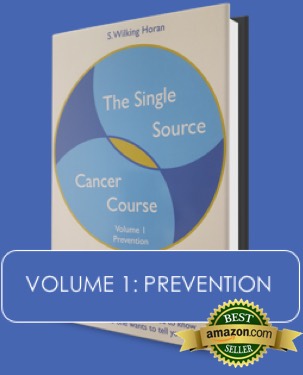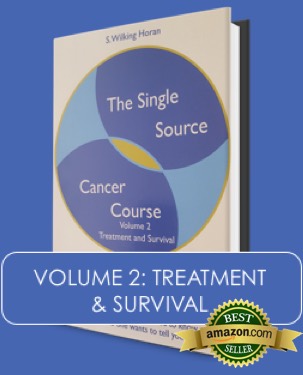 COPING WITH THE PROCESS OF GRIEF
COPING WITH THE PROCESS OF GRIEF
Hello everyone and welcome to another WELLNESS WEDNESDAY. This week we’re going to discuss grief – and the grieving process. Because, life is an ever-changing phenomenon in which we all experience loss at one time or another – in one way or another. And, we must deal with it in a way that heals us and moves us forward in a life-affirming way.
Loss itself comes in many forms. For instance, we have spoken several times about the loss of our health. And, the related loss of losing some of our physical abilities, or the loss of our hair, or the loss of a body part. Loss can result from a divorce or the loss of a cherished dream. It can be the loss of financial stability or the final sale of a family home. The loss of a job or a friend. And, of course, there is the loss that results from death. The death of a beloved pet. The death of a spouse, a friend or a family member.
Now, this is particularly close to my heart right now. For, it is with deep sorrow that I share with you the news that my forever-strong, incredible Mother passed away two weeks ago. And, I am in the middle of all the complicated feelings, emotions and physical pain that come with this very difficult loss. Yes, she had lived a long, good life. And, she had been in declining health over the past year. But, truth be told, we are never really prepared for the finality that the death of a loved one brings.
Yet, I know that many of you as well are dealing with your own losses in one form or another. So, there’s nothing I would like more than for us to explore this often overpowering emotion called grief – together. Let’s examine the grieving process and increase our understanding of it – together. And, let’s try to ease one another’s pain and support each other as we strive to move forward and once again find balance in the ever-changing world around us – together.
For you see, grief is a natural part of the human condition. When something or someone we love is taken away from us, we suffer emotionally. And, grieving is a very personal experience. There is no right way or wrong way to grieve. How we grieve depends upon many factors such as our personality, our past experiences, our age, our faith, our culture, our coping skills and, of course, the nature of our loss. Grief is a fluid emotion that has its own time-table. We may be able to move through it quickly in a few weeks – or we may experience its lingering pain and confusion for years. But, whatever your grief experience encompasses, there are a few powerful insights that can help us through the process.
Let’s begin with the wonderful psychiatrist Elisabeth Kubler-Ross who in 1969 presented a theory that became known as the FIVE STAGES OF GRIEF. She based her theory on years of studying the feelings and emotions of patients facing a terminal illness. Over time, however, her theory was applied to individuals facing many different types of loss. And, within these stages of grief, these are the types of statements or questions we may find ourselves posing:
- DENIAL: “This can’t really be happening. This cannot be real.”
- ANGER: “Who can I blame for this? Whose fault is this? Why did this happen to me?”
- BARGAINING: “If this will only go away, I promise to ____. Please make this better and I will never again ____.”
- DEPRESSION: “I don’t feel like doing anything. I’m too sad to get up in the morning. I feel too bad to leave the house.”
- ACCEPTANCE: “I understand why this happened. I’m at peace with the world and myself. All is as it should be.”
Now, it’s important to know that when we are grieving we may not experience each of these five stages. Or we may not experience them in this order. In fact, some of us may not experience any of these stages before we resolve our grief. But, for the most part the FIVE STAGES can be very useful in understanding our grieving experience. It’s not a rigid framework. Rather, it’s a flexible tool designed to help us cope with the stress and sadness of loss.
Now, once we have this outline of possible stages, we can fill it in with a number of different emotional and physical responses. As we grieve – or mourn – we can expect to experience different symptoms associated with the process. And, these FIVE SYMPTOMS OF GRIEF are among the most common:
- SADNESS: This, of course, is the main symptom of loss with which we are all familiar. We may find ourselves weeping constantly. We may find ourselves overwhelmed by inconsolable despair. We may feel profound unhappiness or loneliness or longing for that which is lost.
- GUILT: Guilt comes in many forms – and each is completely natural and normal. Sometimes when we experience loss we wonder “what if?” What if I had done this differently? Or what if I had said that? We sometimes wish for a do-over. We wish to go back to a time before the loss so we can do something to change the outcome. We feel guilty about not doing enough. Or, we may even feel guilty because we feel relieved when a loved one dies.
- FEAR: Loss and grief can trigger significant fear. Our world is suddenly quite different. We may feel insecure and helpless. We may worry about our ability to live life well or take on responsibilities. We may suffer anxiety and panic attacks and a loss of confidence. And, when our loss involves the death of a loved one, we may fear facing life without that person and experience fears about our own mortality.
- DISBELIEF, SHOCK & INSTABILITY: Related to denial, grief can trigger an inability to comprehend what has happened. We may not feel capable of accepting the loss. We may feel numb. We may feel an inability to think clearly or make daily decisions. We may not be able to relate to others or communicate well. We may keep expecting to see a loved one who has passed away – or hear their voice – or see them come through the front door. We may feel we have lost our grasp on reality.
- PHYSICAL DIFFICULTIES: There is always a physical component to the emotional symptoms of grief. We may find ourselves fatigued during the day and yet unable to sleep at night. Nausea and indigestion may be experienced. We may have unexplained aches and body pain. We may experience headaches and a loss of appetite. Weight loss or weight gain may occur. And, our emotional stress can have a profound effect on our immune systems making us more susceptible to illnesses such as colds and flus.
And, now that we have a general understanding of the stages of grief and the emotions associated with them, let’s discuss FIVE COPING STRATEGIES FOR GRIEF – for these are the tools that will help us move through the grieving process and regain our emotional, spiritual and physical balance:
- EMOTIONAL EXPRESSION: Get creative. Express your feelings by writing about your loss. Create a Journal in which you chronicle your emotions throughout each day. Perhaps design a Scrapbook based upon the life of your loved one – or the home you lost. Or begin a Book of Possibilities in which you write about and post pictures of the life you hope to rebuild or the health you wish to regain.
- SPIRITUAL RITUAL: While questioning your God or religious beliefs after a loss is normal and common, it also may be a time in which your beliefs are strengthened. The serenity of Spirituality comes in many forms. If you have always found solace by attending Church, Temple or Mosque this is the time to continue doing so. Or you may find peace in meditation, yoga, Tai Chi or the healing touch of Reiki. Even deep breathing and visualization can calm our mind and ease our pain.

- SOCIAL SUPPORT: Be with others. Reach out to friends and family. Surround yourself with people who understand. Give yourself the chance to vent your pain and sorrow through intimate communication. Talk about your loss and your feelings. Tell your story over and over again. For, this storytelling – this venting to others – will facilitate the healing process.
- PHYSICAL NEEDS: Tragedy of every kind negatively impacts our health. To combat the stress of loss, remember to take care of your vehicle – your physical body. Try to eat healthy foods. Exercise as often as you can. Walk. Make sure you get plenty of rest. Drink lots of water and stay hydrated. Your immune system is under attack and you need to do everything you can to protect yourself from further harm.
- PERSONAL PAMPERING: On the other side of the coin, don’t forget to be patient with yourself. Don’t push yourself too hard. Take it easy. Read a good book or put on some beautiful music. Get a massage or have your hair and nails done. Have a piece of delicious, decadent dark chocolate every day to boost your mood and energy. Soak in a steamy hot tub. Sit in the warm soothing sun. Wear soft, fluffy slippers or satiny smooth silk pajamas around the house. Be kind to yourself.
We have a long road ahead of us my Friends. But tragedy, loss and grief are all an inescapable part of life on this Earth. Just know, as I do, that we will get better. We will get through it. It will gradually get easier. It will take time. It will take patience. But, sooner or later, we will laugh again. And, we will experience once again the many joys this life has to offer. Until then, be brave, be strong and always Hold on Tight to Hope!
Once again, thank you all for joining me. Until next time, stay in GOOD HEALTH and . . .
TAKE THE COURSE AND TAKE CHARGE!




Leave a Comment